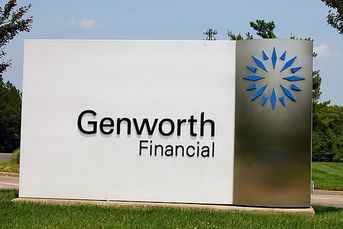Advisers blind to threat of direct investing, survey shows

Mostly unaware of money clients put into direct accounts; 'market is bigger than many people recognize'
Direct-investment platforms are becoming a more formidable competitive challenge for investment advisers — a challenge of which many of them may not even be aware.
Between 2008 and 2010, assets in direct-investment platforms such as Fidelity Brokerage Services LLC, The Vanguard Group Inc, Charles Schwab & Co. and TD Ameritrade Inc., grew from $2.6 trillion to just under $3.7 trillion, according to research from Cerulli Associates Inc.
While that’s still smaller than the nearly $12.5 trillion managed in various adviser channels, the two-year growth rate for the direct channel was 19%. The percentage was 14% for the traditional channel.
“The market is bigger than many people recognize,” said Katherine Wolf, associate director at Cerulli. “We rank it as the second biggest distribution channel after the wirehouses.”
The direct firms now serve a wide range of clients, including high-net-worth and advice-seeking clients, said Ms. Wolf. Many use the platforms for their primary investment accounts, while others create secondary trading accounts outside a relationship with an adviser. “Some investors want to try out their own ideas and compare them to results they get with a financial adviser. Others are just testing services elsewhere from where they have most of their money,” said Ms. Wolf.
More often than not, it appears that investors with a financial adviser are hiding their direct accounts from their adviser. A Cerulli survey of financial advisers found that the average adviser believed that 20% of their clients maintained such direct accounts. Another Cerulli survey of investors who use a financial adviser, however, found that more than three-quarters had a direct account.
“I think financial advisers overestimate their influence with their clients,” said Ms. Wolf. “They want to believe that they have the bulk of wallet share and it’s difficult for them to admit if they don’t.”
One of the big drivers of the growth in the direct channel is the ramp-up of programs that provide advice to investors. Managed-account programs at some of the larger companies, for example, offer ongoing investment management for a fee and financial planning, and may even have estate attorneys on staff for consultation. In general, fees in such programs are less than 1% of assets. “The offerings are pretty extensive and can replicate what traditional advisers offer,” said Ms. Wolf.
The advice for more-self-directed investors — whether online, by phone or in person — is generally highly standardized and controlled by the companies, with reps having little flexibility to depart from the script. Nevertheless, the improving quality of the advice and the efficiency of the platform could lead to further market share gains.
“The platforms are becoming more advice-driven,” Ms. Wolf noted. “And that’s where we see the threat to the advisory model.”
Learn more about reprints and licensing for this article.




